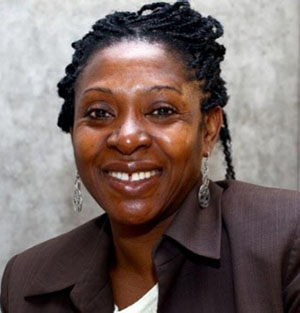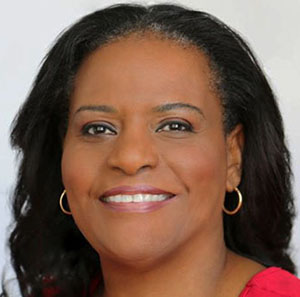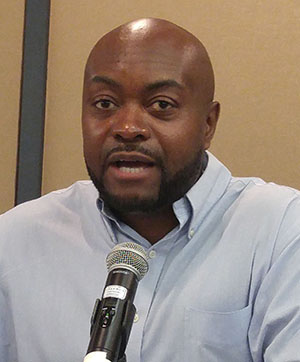By Neil Armstrong
PRIDE Contributing Writer
TORONTO, Ontario October 5, 2017 — Several African Canadian human rights and workers’ rights activists in the country have welcomed the recommendations of the recently released UN Report on People of African Descent in Canada.
The Working Group of Experts on People of African Descent visited Canada, from October 17-21, 2016, at the invitation of the government, and met with various civil society organizations in different parts of the country — Toronto, Montreal, Halifax and Ottawa — as well as representatives of the provincial and federal levels of government.
The group also met with many African Canadians, human rights defenders, lawyers, academics and individuals, who shared their views on the human rights situation of people of African descent in the country.
The report was presented to the thirty-sixth session of the United Nations Human Rights Council in September.
Among the recommendations are that the government of Canada should issue an apology and consider providing reparations to African Canadians for enslavement and historical injustices; and legally recognize African Canadians as a distinct group that have made — and continue to make — profound economic, political, social, cultural and spiritual contributions to Canadian society.
It also wants the government to take concrete steps to preserve the history of enslavement and the political, social and economic contributions of African Canadians by establishing monuments in their honour.
The report also calls on the government to ensure that textbooks and other educational materials accurately reflect historical facts as they relate to past tragedies and atrocities, in particular enslavement, to avoid negative stereotypes of people of African descent.
“We are glad to see the calls made by the Working Group that Canada make reparations for its history of slavery and segregation,” says Margaret Parsons, executive director of the ACLC.
The Report of the Working Group recognizes the legacy and current state of anti-Black racism in Canada, says the ACLC in a press release.
It adds the report also recognizes “Canada’s history of slavery and de facto segregation in housing, schooling, employment and public life, and notes the Working Group’s concern about the human rights situation of African Canadians. It also makes distinct reference to the rich history and contributions by the African Canadian community to the development of Canada as it is known today.”
“I totally agree 100 percent,” says Dr. Afua Cooper, James R. Johnston Chair in Black Canadian Studies at Dalhousie University in Halifax, Nova Scotia, about the recommendations of the report.
“I have been at the forefront of putting African Canadian studies and history on the map. It has often been a lonely road because, one, academia, as a whole, do not think of our history as legitimate, and the government thinks like that too. Furthermore, many persons in government, media, etc. do not want to believe that slavery existed in Canada.”

Dr. Afua Cooper, James R. Johnston Chair in Black Canadian Studies at Dalhousie University in Halifax, Nova Scotia.
Cooper, who is also the Chair of the Black Canadian Studies Association, says disproportionate rates of incarceration, unemployment, (and) police violence are some of the legacies of slavery.
“Our kids are over-represented in children’s aid, school drop out, and yet no one seems to think we have a problem.”
The ACLC supports all the recommendations made by the Working Group, but is particularly in support of the calls for the Canadian government to issue an apology and provide reparations for enslavement and to create a national Department of African Canadian Affairs.
“We have been asking the Canadian government to take these actions for decades. Our reports to the UN have essentially put forward the same recommendations as those made by the Working Group in its report. Various UN human rights bodies have also echoed our recommendations in past reviews of Canada’s human rights record concerning African Canadians. These problems and these recommendations are not news to civil society organizations, to the UN Human Rights Council or to the Canadian government. It is far past the time for the government to take action and we are glad this report now reinforces what African Canadians and the ACLC have been saying for so long,” says Parsons.
The Coalition of Black Trade Unionists (CBTU) says the issue of an apology to African Canadians for slavery, as well as reparations, is something that CBTU sees as long overdue.
“To date, African Canadians are still suffering from the ripple effects of Canada’s role in the Trans-Atlantic Slave Trade. Everything from mass incarceration rates to overrepresentation within the children’s aid society and higher unemployment rates for African Canadians can be traced back to the anti-Black racism that flows back to slavery,” says Mark Brown of the CBTU.
In light of the UN report, the CBTU-Canada is in the process of putting together a coalition of like-minded organizations, across Canada, with the primary goal of obtaining an apology from the federal government for Canada’s role in the Trans-Atlantic Slave Trade, followed by discussions on reparations.
“We are encouraged by the UN report and look forward towards working with our labour and community partners, towards achieving this goal,” says Brown.
In its conclusions, the Working Group said, despite the reputation for promoting multiculturalism and diversity and the positive measures taken by the national and provincial governments, it is deeply concerned by the structural racism that lies at the core of many Canadian institutions and the systemic anti-Black racism that continues to have a negative impact on the human rights situation of African Canadians.
It recommends that a nation-wide, mandatory policy on the collection of data, disaggregated by race, colour, ethnic background, national origin and other identities, be implemented to determine if, and where, racial disparities exist for African Canadians, so as to address them accordingly.
“The Government of Canada should review, in line with article 1 of the Convention on the Elimination of All Forms of Racial Discrimination, the implications of the use of the term “visible minority”, so as to address, more precisely, the socioeconomic gaps and other disparities between different ethnic groups,” the report says.
The group wants the government to restore, fund and update the National Action Plan against Racism to comprehensively address anti-Black racism and human rights’ concerns of African Canadians.
It recommends that the Government of Canada develop and implement an African Canadian justice strategy to address the anti-Black racism and discrimination within the criminal justice system.
On the matter of carding, the Working Group recommends that “the practice of carding, or street checks, and all other forms of racial profiling, be discontinued and that the practice of racial profiling be investigated and the perpetrators sanctioned. There must be a cultural change in law enforcement and greater respect for the African Canadian community”.
“The Government of Canada should adopt effective measures to address the root causes of overrepresentation of African-Canadian children in child care institutions. All efforts should be taken to keep the family together and alternatives to removing the child from his or her parents should be considered, including counselling and rehabilitation programs for parents. Training for child welfare staff should include strengthening cultural competencies to serve African Canadian communities,” notes one recommendation.
Another calls on the government to systematically address employment disparity for African Canadians through the enactment of employment equity legislation.
It notes that long-term anti-poverty strategies should target the specific needs of African Canadians.
The group also wants the government to ensure inclusive policies, access to resources and access to information to help African Canadians create businesses that will enable economic self-sufficiency and create viable jobs.
“There must be targeted hiring policies for people of African descent, similar to those for First Nations people. Develop a cultural competency program for employers to raise awareness about equity and to support African Canadians presently employed and an incentive program, such as tax breaks, for employers who hire African Canadians.”
The report calls on the government “to provide financial support for the implementation of the Land Title Clarification Act in Nova Scotia, which is aimed at resolving all outstanding land claim issues within historically Black communities. Amend the Act to respect the cultural traditions of African Nova Scotia communities.”
On September 27, Tony Ince, Minister of African Nova Scotian Affairs announced in Cherry Brook that $2.7 million dollars will be provided to residents of five predominantly black communities, over two years, to help resolve the land claim issues.
“The communities of East Preston, Cherry Brook, North Preston, Lincolnville, and Sunnyville have suffered from historical racial discrimination that prevented people from receiving legal title to the land they own. We know this has had a negative effect on people for many years. It is very important that we remove barriers to the clarification of land ownership and address the unequal treatment that African Nova Scotians have faced.
“We know this has been a long and difficult process, and it is time for a change. The new way forward brings in people dedicated to working with you and funding to help you get clear title to your land,” says African Nova Scotian Affairs on its website.
The UN Working Group also says the Canadian government should “make available pathways to residency and citizenship to seasonal workers to protect them from exploitation. Increase access to permanent residency and enable labour mobility by issuing open work permits, regulating employers, and ensure access to health services and adequate housing. Provide support, legal resources, community outreach and education to migrant workers on how to address concerns and disputes with employers particularly linked to modern-day slavery and other violations of their human rights.”
In the penultimate recommendation, the Working Group says the government should step up public discourse on the human rights of people of African descent and formally launch, at the national level, the International Decade for People of African Descent.
It ends by calling on the government to undertake impact-oriented activities in the framework of the International Decade for People of African Descent to bridge the existing gaps between policies and practice, including through the implementation of relevant recommendations for recognition and development of and justice for African Canadians.
“The International Decade for People of African Descent and the 150th anniversary of Canada present opportunities to highlight the achievements of African Canadians,” it says.
In its conclusions, the group welcomes the ongoing work by the Government of Canada to revitalize efforts to address racial discrimination, faced by people of African descent, and to promote human rights, diversity and inclusion in partnership with African Canadian communities and civil society organizations.
It also welcomes the important work of the national and provincial human rights institutions in investigating and referring complaints, reviewing legislation, monitoring and issuing recommendations to address systemic anti-Black racism.
The Working Group also welcomed the new federal initiative of appointing a judiciary “that reflects the diversity of the country, encouraging applicants to self- identify on the basis of race, gender identity, indigenous status, sexual orientation and physical disability, and providing training in unconscious bias for committees that screen candidates so as to prevent rejection of good applicants from minority groups.”
The report also highlighted the establishment, in 2016, of the Anti- Racism Directorate to address systemic racism and promote fair practices and policies across the province of Ontario.
The group also notes with satisfaction that, following its visit, the Ontario Government adopted a number of measures for the benefit of African Canadians; it encourages other provinces to follow that example.
 Pride News Canada's Leader In African Canadian & Caribbean News, Views & Lifestyle
Pride News Canada's Leader In African Canadian & Caribbean News, Views & Lifestyle







